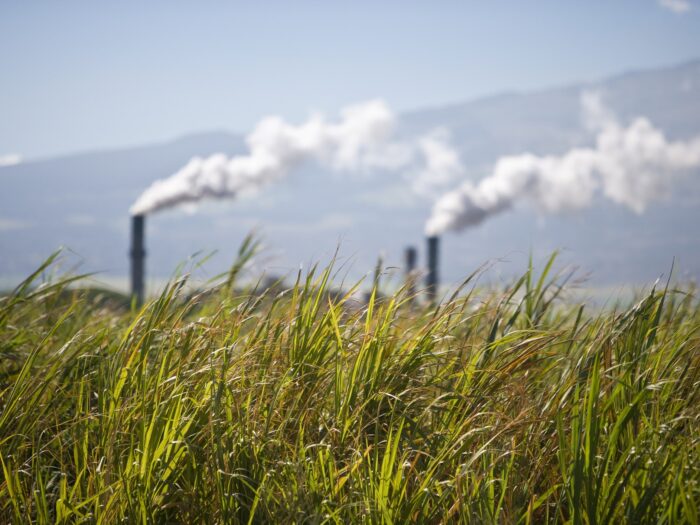Hawaii Court Rules Greenhouse Gas is Pollutant Subject to Exclusion

In a landmark ruling, the Hawaii Supreme Court determined that greenhouse gases are “pollutants” under insurance policies’ pollution exclusion clauses, potentially limiting insurance coverage for climate change-related lawsuits against fossil fuel companies like Aloha Petroleum.
The Oct. 7 ruling in Aloha Petroleum, LTD. v. National Union Fire Insurance Company of Pittsburgh, PA., involved Aloha Petroleum and its insurers, National Union Fire Insurance Company and American Home Assurance Company , both subsidiaries of American International Group Inc. Aloha sought coverage for climate change-related lawsuits brought by Honolulu and Maui counties against it and other fossil fuel companies.
Aloha sued National Union and American Home in the U.S. District Court for the District of Hawaii, but the federal judge determined that state law governed key questions in the case. The Hawaii high court answered two certified questions referred by the federal court that impact whether AIG must defend Aloha in the counties’ lawsuits.
Key Holdings of the Hawaii Supreme Court
The Hawaii Supreme Court made two key rulings. First, the court ruled that an “accident” in commercial general liability insurance policies can include reckless conduct, answering this question in Aloha’s favor. The court found this interpretation fits its precedents, the plain meaning of “accident,” and the principle of fortuity in insurance.
Second, the court held that greenhouse gases are considered “pollutants” under the policies’ pollution exclusion clauses, answering this question in AIG’s favor. The court gave five reasons for this conclusion:
- Climate-heating gases are “traditional environmental pollution” for which the exclusion was designed.
- Greenhouse gases fit the plain-language definition of “pollutant” in the policies.
- The court’s “legal uncertainty” rule does not prompt a duty to defend here, because uncertainty about the exclusion does not affect the outcome that GHGs are “pollutants” under any reasonable interpretation.
- Because there are not two plausible interpretations, the exclusion is not ambiguous.
- Aloha’s reasonable expectation of coverage does not extend to encompass traditional pollution claims.
Allegations in the Underlying Climate Change Lawsuits
The City and County of Honolulu and Maui County have filed lawsuits against Aloha Petroleum and other major fossil fuel companies, alleging that the companies knew since the 1960s that their products would cause catastrophic climate change but concealed this knowledge, promoted climate denial, and increased fossil fuel production. The counties allege that the companies acted recklessly with “conscious disregard for the probable dangerous consequences” and foreseeable impacts of their products.
The lawsuits claim that the counties have suffered damages from climate change impacts such as sea level rise, flooding, erosion, and harm to infrastructure, water supply, and natural and cultural resources. The counties are seeking compensatory and punitive damages, profit disgorgement, and other relief from the fossil fuel companies.
Positions of Aloha Petroleum and AIG in the Insurance Coverage Dispute
Aloha Petroleum and AIG took opposing positions in their insurance coverage dispute related to coverage of the climate change lawsuits against Aloha.
Aloha argued that its conduct was an “accident” covered by the AIG insurance policies. It pointed to Hawaii legal precedent holding that reckless conduct can constitute an “occurrence” triggering coverage. Aloha also contended that greenhouse gases are not “pollutants” under the policies’ pollution exclusion. According to Aloha, the exclusion only applies to traditional environmental pollution, not climate change impacts from the use of Aloha’s fossil fuel products.
On the other hand, AIG maintained that Aloha’s conduct was not an “accident” because the alleged climate change damage was the foreseeable result of Aloha intentionally emitting greenhouse gases while aware of the risks. AIG argued that a reasonable person would anticipate injury from Aloha’s actions. Additionally, AIG asserted that greenhouse gases plainly fit within the policies’ broad definition of “pollutants.” It disputed Aloha’s claim that the pollution exclusion is limited only to traditional environmental contamination.
View the court’s decision here. &








